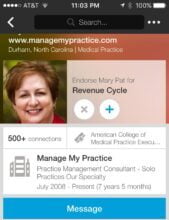This week I had the privilege of serving as the academic program director for a medical conference held in New York City. Traditionally, these events are held in large conference rooms and are very well attended. The lure of the Christmas lights at Rockefeller Plaza bolsters attendance and physicians enjoy bringing their families to the event. At least in Cardiology, these conferences are filled with lectures and powerpoint presentations. The topics are often predictable and, while useful, can become a bit mundane.
This week I had the privilege of serving as the academic program director for a medical conference held in New York City. Traditionally, these events are held in large conference rooms and are very well attended. The lure of the Christmas lights at Rockefeller Plaza bolsters attendance and physicians enjoy bringing their families to the event. At least in Cardiology, these conferences are filled with lectures and powerpoint presentations. The topics are often predictable and, while useful, can become a bit mundane. The meeting room is always full early in the day and by the afternoon session the sights and sounds of New York at Christmas often results in an attrition rate that resembles the Allied push to victory over the Central Powers in WWI.
Having had several years of experience in directing these programs, I decided to create a new vision and set new and unique goals for our meeting
- Engagement
- Excitement
- Debate
- Amazement (or the “Light Bulb” moment )
- Motivation to Act
Rather than discuss traditional academic subjects, this meeting focused on change and outcome. The concepts presented were new to most in the room and the theme was all about Leadership through using novel technology, cooperation and co-management of disease through the continuum of care. What I did not realize was the way in which those in the room would motivate me–I became inspired by my colleagues and their passion for providing care.
As we all are well aware, medicine is changing. No longer will the status quo be adequate for maintaining a healthy practice (irrespective if one is in academics or private practice models). My goals for the meeting this year were to MOTIVATE physicians to actively engage in and to prepare for the dawn of the new day in US healthcare.
I began the day by introducing the audience to the concept of the Physician Executive and I emphasized the importance of not only providing superior care, but engaging in the business of medicine on a daily basis. I challenged them to improve patient outcomes through collaborative approaches to management of disease–by working together with colleagues from different specialties across the continuum of care in a disease process. I challenged the audience to become leaders in their own practices. I challenged the attendees to become involved in regulatory matters, to question the business practices of their healthcare systems and to engage in the use of new technology.
Then I introduced the concept of social media. From the outset, the jaws began to drop. Not just the jaws of those in attendance, but mine as well. I was amazed at the energy, interest and passion of my colleagues. I began to feel better about the future of medicine. The attendees not only were learning about new concepts–they were excited about them. Physicians from all over the country were speaking up, arguing points and proposing solutions to our nation’s heathcare problems. This type of engagement is what must happen as we shape a healthcare system that provides access and excellence for all but also allows for physicians to continue to practice the “art” of medicine. And then there was my “snake oil” sales pitch… Most physicians are thinkers. We love data and large randomized controlled trials.
The concept of using social media to improve medical care and outcomes was completely foreign to most in the room. At the outset of the discussion on social media, I could read looks of skepticism and doubt on the faces in the room. It was as if I were selling “snake oil” or vampire repellant. However, I began to show concrete examples of the utility and effectiveness of social media in medicine, and the odd stares and dismissive chuckles began to fade. The “tough crowd” had become at once engaged and interested.
As we discussed the way in which social media could be used to educate patients, influence opinions, interact with colleagues and effect change, many in the room became inspired. I was amazed at the questions and the eagerness of those in attendance to wade into the waters of social media. In the days following the meeting, I have picked up new followers from twitter with brand new accounts–I can only assume many were in attendance.
I am often humbled by the excellent care my colleagues provide. This week at our meeting in New York, I was again humbled by the passion and eagerness of physicians to improve delivery of care. I am grateful for the opportunity to present new concepts and sell the “snake oil” of social media to physicians from around the country. I feel hopeful about the future of medicine. Although there are many challenges that lie ahead, I believe that by opening eyes and dropping jaws, we can make a difference in the live of our patients, in our practice and in our world.






